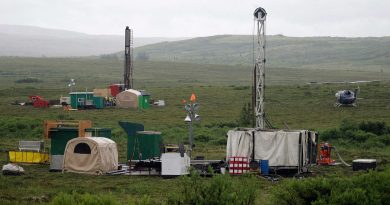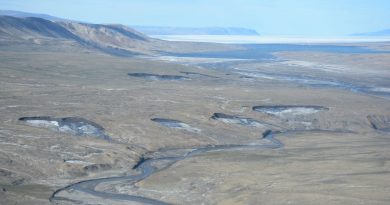Blog: The geopolitical collapse of the Arctic

Hint: It’s not because of climate change.
Five years ago, the Economist published an article headlined, “The Arctic as it is known today is almost certainly gone.” The write-up underscored how climate change and sea ice melt were causing the region as we know it to disappear. “On current trends, the Arctic ocean will be largely ice-free in summer by 2040,” the article estimated.
Shockingly, the Arctic has disappeared even faster than that. Within just a few days after Russia’s bloody invasion of Ukraine, international cooperation in the region disintegrated. The Arctic Council – or more specifically, the seven members apart from the current chair, Russia – paused its activities. They have not recommenced since, crushing cooperation on climate change, science, Indigenous affairs, search and rescue, and more. My own efforts to access Arctic Ship Traffic Data through the Arctic Council Working Group on the Protection of the Arctic Marine Environment have been stymied. I’ve also seen Russian colleagues fail to appear on Zoom calls for longstanding international Arctic projects. It is as if half the Arctic is suddenly missing.
In 1987, speaking from Murmansk, which was then and still is the largest city in the Arctic, Soviet Premier Mikhail Gorbachev famously proclaimed: “Let the North of the globe, the Arctic, become a zone of peace. Let the North Pole be a pole of peace.” To this, he added, “We suggest that all interested states start talks on the limitation and scaling down of military activity in the North as a whole, in both the Eastern and Western Hemispheres.” He also urged a nuclear-free zone in northern Europe.
Imagining Arctic as a political region
Gorbachev’s pronouncement galvanized the eight countries with Arctic territory to build on work that had laid the foundations for imagining an environmental region, exemplified by the 1973 Agreement on the Conservation of Polar Bears. Even before it was curtains for the Soviet Union, it was becoming clear that mounting ecological challenges from pollutants to nuclear waste could be most effectively managed at the international rather than national scale.
Yet perhaps more transcendently, the Soviet premier’s olive branch helped the international community imagine the Arctic as a political region: a space in which countries had mutual interests, where Indigenous populations crossed borders, and where ships, planes, trains, and umiaks should be able to move relatively freely to transport goods and people. Arctic countries began to realize they had more to gain from working together on things like enacting visa-free travel (which miraculously persists in the Barents region as of April 7) and delimiting maritime boundaries to allow for oil and gas extraction rather than building costly radar stations to keep a frozen eye out for enemy missiles.
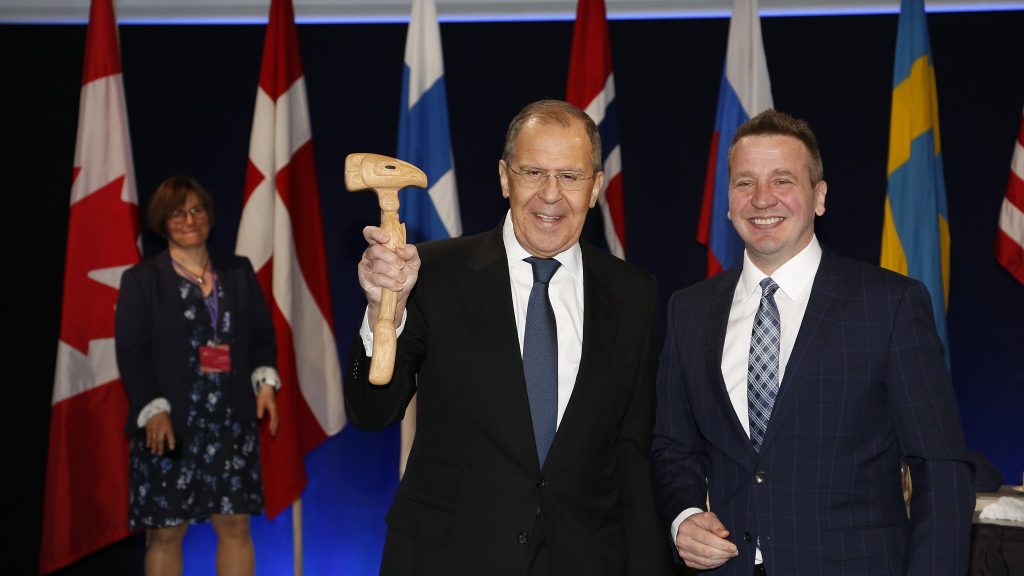
(Gunnar Vigfusson/Ministry for Foreign Affairs)
Crystallizing the spirit of cooperation, in 1996, the Arctic Council was established. Within its structure were all eight states with territory north of the Arctic Circle as member states and six Indigenous Peoples’ organizations as permanent participants. Growing from strength to strength, in 2013, the Arctic Council expanded to welcome five Asian states as observers.
In hindsight, this moment marked the zenith of international cooperation in the Arctic rather than the dawn of a new era. Now, less than a decade later, a new iron curtain is forming between the two hemispheres Gorbachev wished to unite, with Ukraine caught in the middle and brutalized on a daily basis. Thirty-five years of cooperation in a demilitarized Arctic have come to a close.
RIP, the Arctic: 1987-2022. It seems like only when the region is disappearing, either environmentally or politically, does the rest of the world start to pay attention.
Russian, an Arctic conference lingua franca no more
When my interest in the Arctic as a coherent environmental and political region began growing sometime around 2008, I decided to start learning Russian. I attended Arctic conferences starting in 2013 and found that while there were often dozens of Russian delegates in attendance, language barriers often impeded communication. Another motivation for learning Russian is that the country takes up almost exactly half the Arctic, both in terms of population and coastline. Learning the basics opened doors for me from St. Petersburg to Vladivostok. While I never developed enough fluency to read classics like War and Peace, I could still converse with people and, crucially, flag down a marshrutka to get from one Siberian outpost to another.
The view from Estonia
While I haven’t visited Russia since 2019, I came very close to its borders one week ago when I attended the Lennart Meri Conference in Tallinn, the capital of Estonia. The delegates and tenor differed dramatically from the Arctic events I’d attended over the past decade. First, there were no Russians nor Chinese in attendance. This was neither the kind of time nor place where you might find Sergey Kislyak, former Russian ambassador to the US, and Fu Chengyu, former Chairman of China’s state-owned oil corporation, Sinopec, on the same stage, as occurred at the 2018 Arctic Circle assembly in Reykjavik.
In Tallinn in 2022, I found it disorienting to leave a venue where absolutely zero Russian was spoken only to hear Russian spoken everywhere outside. Since the times of the Soviet Union and even Russian empire, Estonia and the wider Baltic region have had significant Russophone populations. This population has likely recently grown as a result of the temporary influx of Russian nationals with money and visas fleeing their home country following the invasion of Ukraine. If I couldn’t use my rusty Russian anymore to break the ice with delegates from Siberia at conference receptions, I guess I’d use it instead to eavesdrop on a conversation between a rowdy teenager and a bouncer outside a McDonald’s in the late-evening Baltic sun.
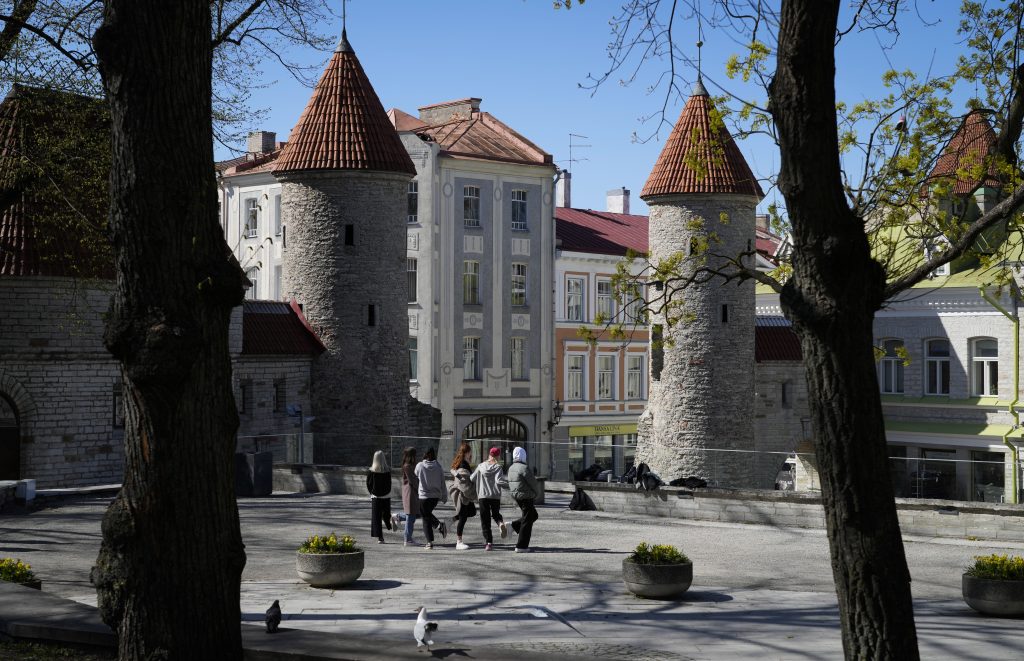
A second striking feature of the conference was the laser-sharp focus on military and security issues. These are precisely the topics outside the remit of the Arctic Council, and indeed of many Arctic conversations in general. Talk of fighter jets and nukes is generally unfashionable in the eyes of Arctic experts trained in the halcyon days of the “Global Arctic,” a concept which offered a new geographic framing, method, and analytic for studying a more interdependent region. Until earlier this year, few critical scholars of the Arctic were likely interested in considering whether a new Cold War is starting, especially after having spent their formative years in cross-border exchange networks like the University of the Arctic and summer schools like the Calotte Academy. Based out of the University of Lapland, since the 1990s until the Covid-19 pandemic, the program transported students seamlessly on a bus between Finland, Norway, and Russia to learn about Arctic issues. It’s hard to imagine that I even once went on a University of the Arctic field school that took us to a former Soviet diamond mine. Sadly, now, once outmoded questions about the prospects of war in the Arctic are topics that everyone must face head on.
A new region takes shape: Arctic-Baltic-Mediterranean
At the Lennart Mari Conference in Tallinn, the trending topic was the “new security space” that was emerging from the Arctic to the Baltic to the Mediterranean. With the prospect of Finland and Sweden joining NATO, their countries will be able to “plug-and-play” with existing military infrastructure. The possibility of Finnish vessels traversing waters from the Barents to Ibiza was raised by one delegate. And when the subject of infrastructure came up, the discussion concentrated on improving railways to move troops faster across Germany rather than the usual bread and butter of kindergartens and hospitals. It was as if every issue was suddenly being securitized.
Notably, the rapid creation of a remilitarized region in Europe sparked discussions in exhilarated rather than hushed tones. Throughout the conference, each panel had a theme song that played as the delegates were taking their seats. For the concluding session moderated by President of Estonia Alar Karis, entitled “Trusting Who We Are: Baltic Regional Security” (recording available here), the organizers selected a classic Metallica hit: “Nothing Else Matters.”
The grim song didn’t strike quite the right note. Upon taking the stage, Anna Wieslander, director for Northern Europe at the Atlantic Council, a think tank, declared, “I listened to the song but I felt a bit more Pointer Sisters: ‘I’m so excited!‘” she cheerfully sang. If the Arctic was collapsing, Europe was solidifying into a single defense space that could provide deterrence by denial, ensuring that Russia would have “no interest in getting started,” Wieslander, who is also secretary general for the Swedish Defense Association, underlined. Speaking in cruder terms, the Swedish delegate framed the new security space as a “wet dream for a defense planner.” Melting away Gorbachev’s zone of peace, she cooly contended, “We need to have an anti-axis area of denial.”
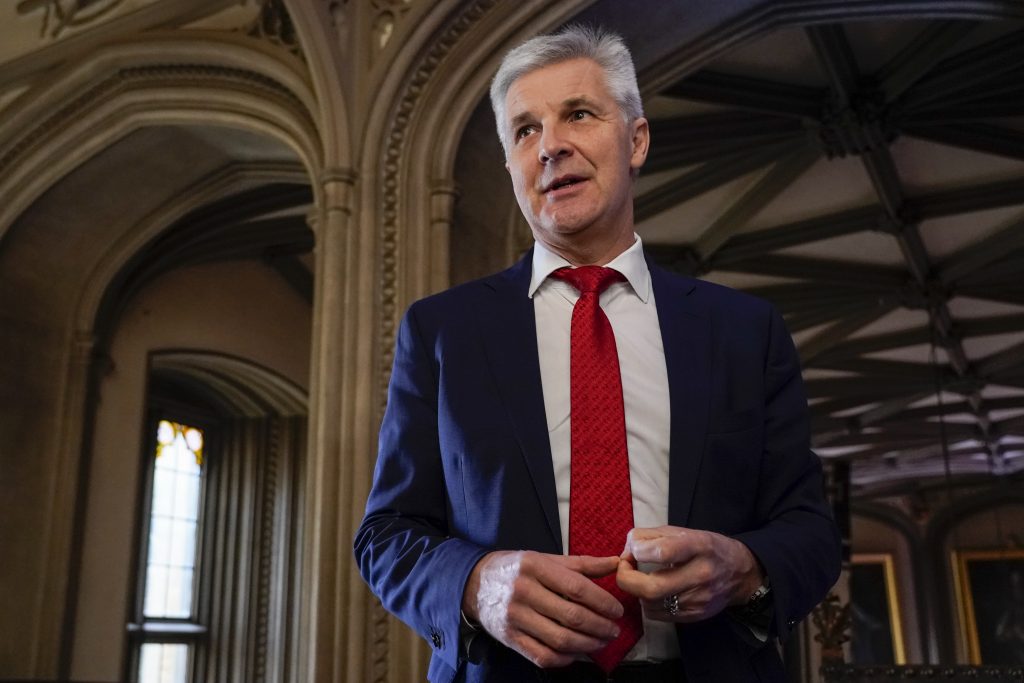
Another distinguished panelist, Latvia’s Minister of Defense and Deputy Prime Minister for Comprehensive Defense, Artis Pabriks, reflected on the possibility of Finland and Sweden joining NATO almost two decades after their Baltic neighbors signed up to the alliance. He argued that Fennoscandian membership would change the nature of NATO, the European Union, and security in the Baltics and Nordics. “If we follow the advice of Churchill and say, ‘Never miss a good crisis,’ from that perspective, there are a number of opportunities,” Pabriks averred.
And lest we forget, the crisis was still ongoing: during an evening panel a few nights prior, one Ukrainian representative speaking by Zoom had to suddenly disconnect due to air raid sirens.
Elegy for the Arctic 2.0
All these events seemed tragically removed from eight years ago, when, at Keflavik airport in Iceland, a country which has benefited immensely from Arctic cooperation, the softening of borders, and the rise of circumpolar travel and tourism, I ran into Artur Chilingarov, the Russian national hero who helped plant a Russian flag on the seabed beneath the North Pole. Now, it would be a miracle if I ran into any Chinese or Russian official at a conference in the so-called West.
Nevertheless, despite the absence of representatives of the Russian state at the Estonian conference, its specter still haunts the former Soviet republic. Between 1940 and 1991, the Baltic state lost 90,000 people – equivalent to almost ten percent of its present population – to Soviet oppression. Estonia is an independent country, NATO and EU member, and, at least prior to the “pause”, an Arctic Council observer applicant determined to prevent the horrors of the twentieth century from repeating themselves. Estonia also has clear-eyed and vocal champions in individuals such as former president Toomas Hendrik Ilves, who spoke frequently at the conference.
A visit to the Victims of Communism Memorial on the shores of the Baltic Sea brought Estonia’s readiness to resist into sharp relief. On a cold, clear Sunday, the memorial, built for the Estonian centennial in 2018, was empty save for one large family. As the parents and children walked between the pine trees and gleaming chrome structures, they would suddenly appear and then disappear from view, creating a somber effect similar to that of the Holocaust Memorial in Berlin. Standing towards the top of the memorial on a pathway hemmed in by giant silver blocks, I could just barely make out the gentle waves of the Baltic Sea lapping the sandy shores. I remembered the eloquent words of a delegate on the final panel. Reflecting on how the Finnish decision to join NATO had won the resounding support of the country’s parliament, Charly Salonius-Pasternak, Senior Research Fellow at the Finnish Institute of International Affairs, cantillated, “It is the Finnish population that ultimately ensure that we will have a mare nostrum.”
If the Arctic Ocean has collapsed, the newly unified sea stretching from the North Atlantic to the Baltic to the Mediterranean is its replacement – or at least, half of it. Farewell to the Arctic, and welcome to a brave new world.
Related stories from around the North:
Canada: Canada needs a ‘more consistent’ presence in North to bolster security, Inuit leader says, CBC Radio
Finland: US military refuelling plane flies over Finland day after NATO announcement, The Independent Barents Observer
Norway: ‘Nor night nor day no rest’ – Arctic diplomacy divided (and united), Blog by Marc Lanteigne
United States: U.S. Army poised to revamp Alaska forces to prep for Arctic fight, The Associated Press
This post first appeared on Cryopolitics, an Arctic News and Analysis blog.


